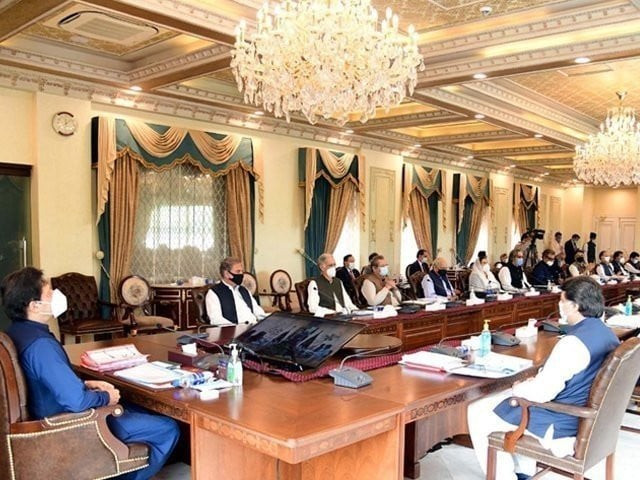STI policy looks to unlock innovation potential
MoST says policy contains 61 ‘radical and progressive proposals’ to revitalise ‘national innovation system’

The federal cabinet has approved Science, Technology and Innovation Policy, 2021 to exploit the potential in this sector and to use it as a pillar for international diplomacy.
The policy will help Pakistan adopt modern approaches to STI governance. With focus on emerging technologies, including artificial intelligence, augmented reality, internet of things and quantum computing, the policy aims to keep Pakistan abreast with global developments.
The primary objective of the policy is to accelerate the country’s transformation towards knowledge-based economy through a paradigm shift from research and development to practical application for societal impact through job and wealth creation.
The Science & Technology Division informed the federal cabinet that the policy has been formulated in accordance with Prime Minister’s Performance Agreement with the constituent ministries.
Read: Currency dealers oppose 16% FED
A coordination committee was constituted by the MoST to prepare a comprehensive working paper by consulting 24 federal government’s sectoral policies, international policies of states, including Iceland, United Kingdom, Bangladesh and India, and the manifesto of the Pakistan Tehreek-e-Insaf (PTI) to set forth a policy roadmap.
An expert working group was also constituted later to formulate policy through a series of consultations, discussions and focused group sessions.
An initial draft was shared with all stakeholders, including public, federal and provincial entities, and general public via MoST website, and notification of the same through national newspapers.
Consultative meetings with leading national and international experts were also held for their valuable input. It was informed that an overwhelming response was received from multiple stakeholders, which was suitably incorporated, where necessary, in the subsequent versions of the draft.
The cabinet was told that the new STI policy contained 61 radical and progressive proposals which would serve as a game-changer in revitalising the ‘national innovation system’ of Pakistan.
Read More: Income-expense gap widens to Rs1.8tr
STI is globally recognised as the linchpin of societal development and economic growth. Recent global developments have reaffirmed the significance of science and technology for its far-reaching positive dividends.
Being a developing country, the ministry said that it was quintessential to fully exploit the benefits of the science and technology for growth and development.
With the onset of pandemic, countries were increasingly vying for higher positions on the development ladder by leveraging STI.
The cabinet was informed that to embark on the journey of STI based development, Pakistan needs to derive inspiration from the Islamic principles of quest for knowledge and draw upon the available resources that the country had achieved in STI so far.
To achieve prime minister's ideals of a welfare state, optimal capitalisation was to exploit opportunities provided by STI, it was added.
Such requirements could only be met in an effective and efficient way, if a robust policy framework is in place. The implementation mechanism is embedded within the policy and has been purposely kept flexible and dynamic enough to provide appropriate response to the requirements of changing conditions.
Approval of the federal cabinet was solicited to the draft of National Science, Technology & Innovation Policy, 2021, under section 16 (1) (k) of the Rules of Business 1973.
Read Also: UK law firm exposes India’s war crimes in IIOJK
During the discussion, the members, while commending the initiative of Science & Technology Division, suggested increased focus on funding research in the country.
Better coordination and synergy between the Federal Education & Professional Training, Science & Technology and IT & Telecom Divisions was also emphasised to avoid policy overlaps.
Considering the limited resources, the need to prioritise sectors, where research could best serve the interests of the country, was also underscored. Furthermore, creating centres of excellence, such as Indian Institute of Technology (IIT), which could drive export of IT services and manpower, was stressed.
The cabinet considered the summary titled ‘Science, Technology and Innovation Policy - 2021’ and approved it.



















COMMENTS
Comments are moderated and generally will be posted if they are on-topic and not abusive.
For more information, please see our Comments FAQ